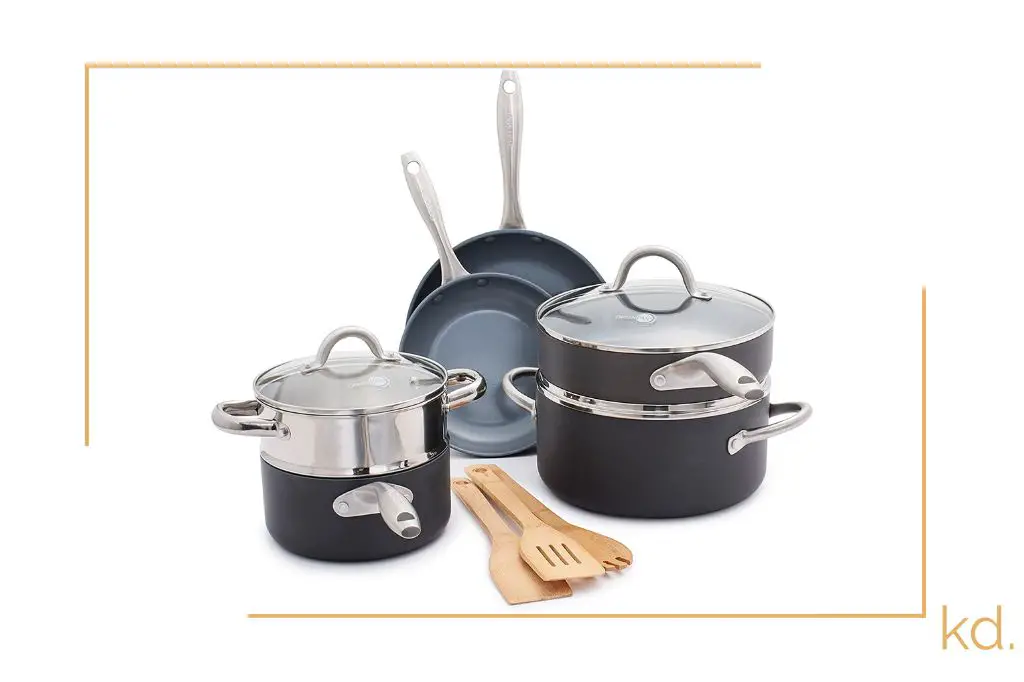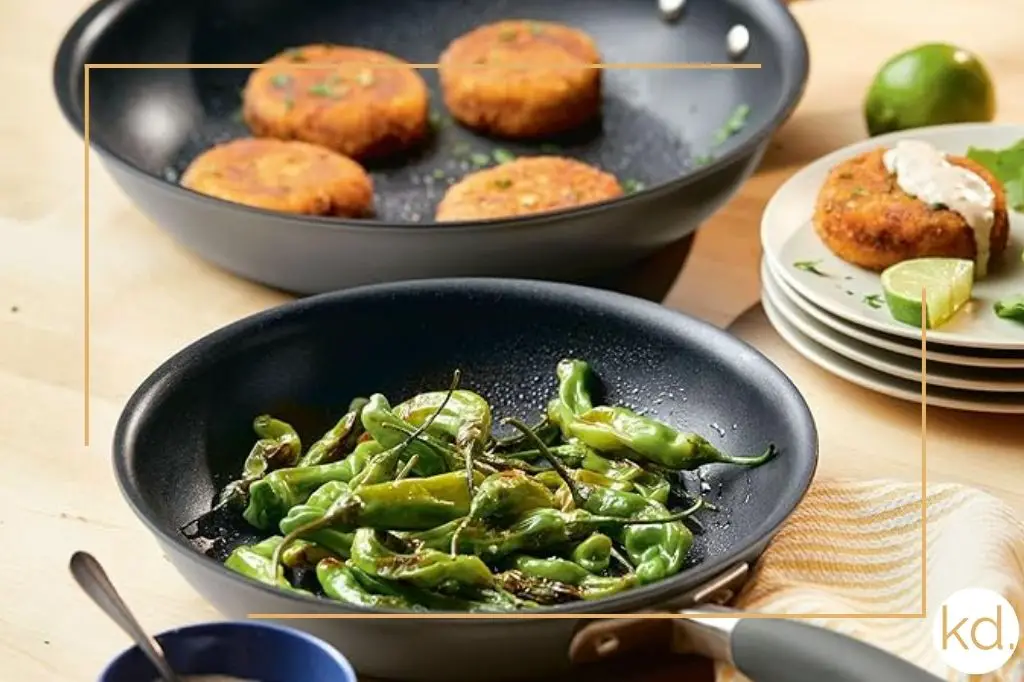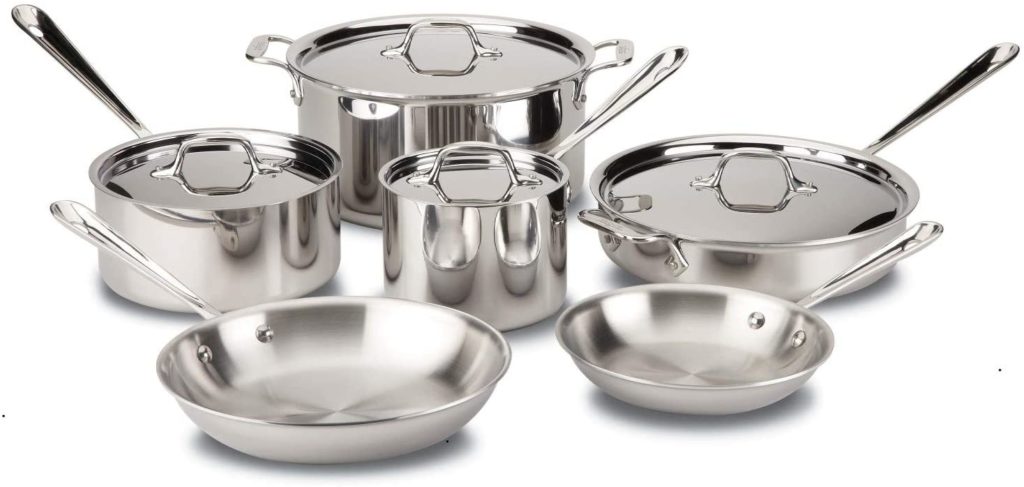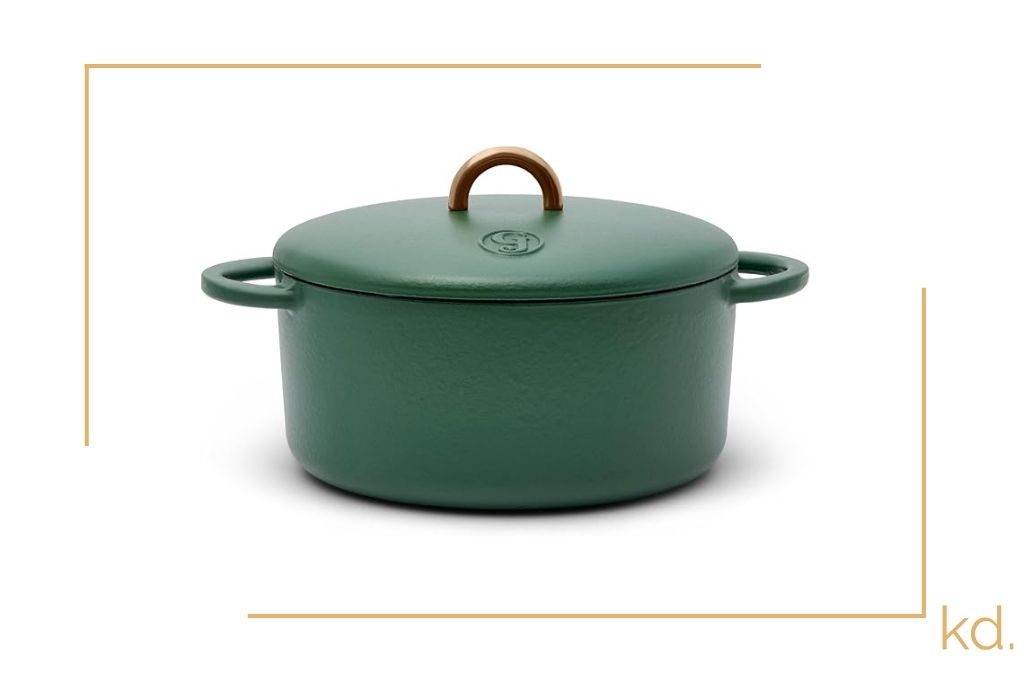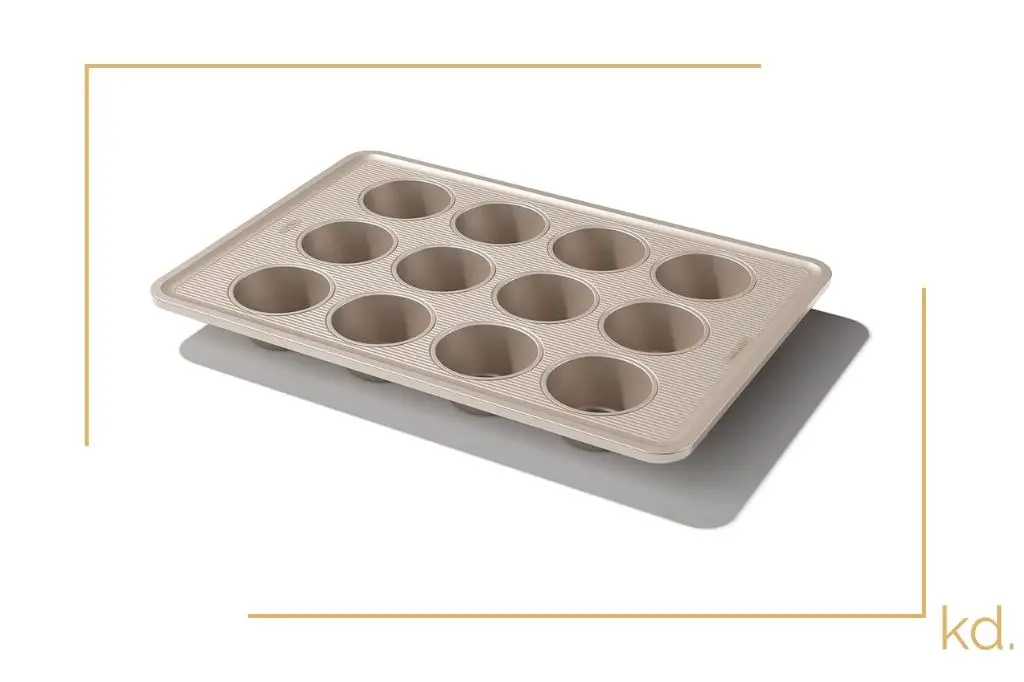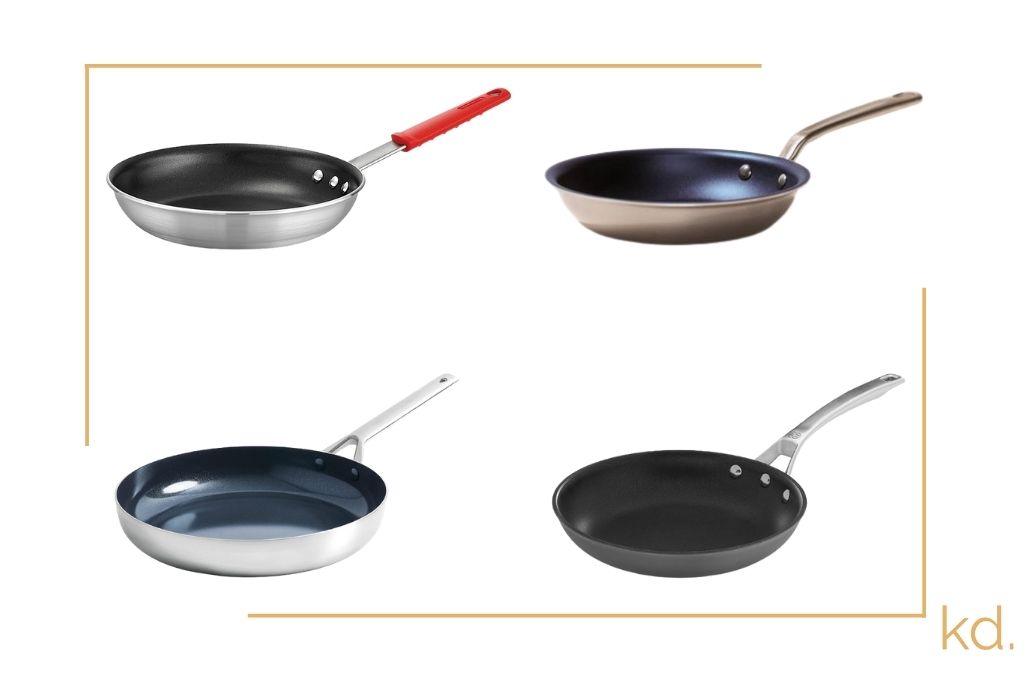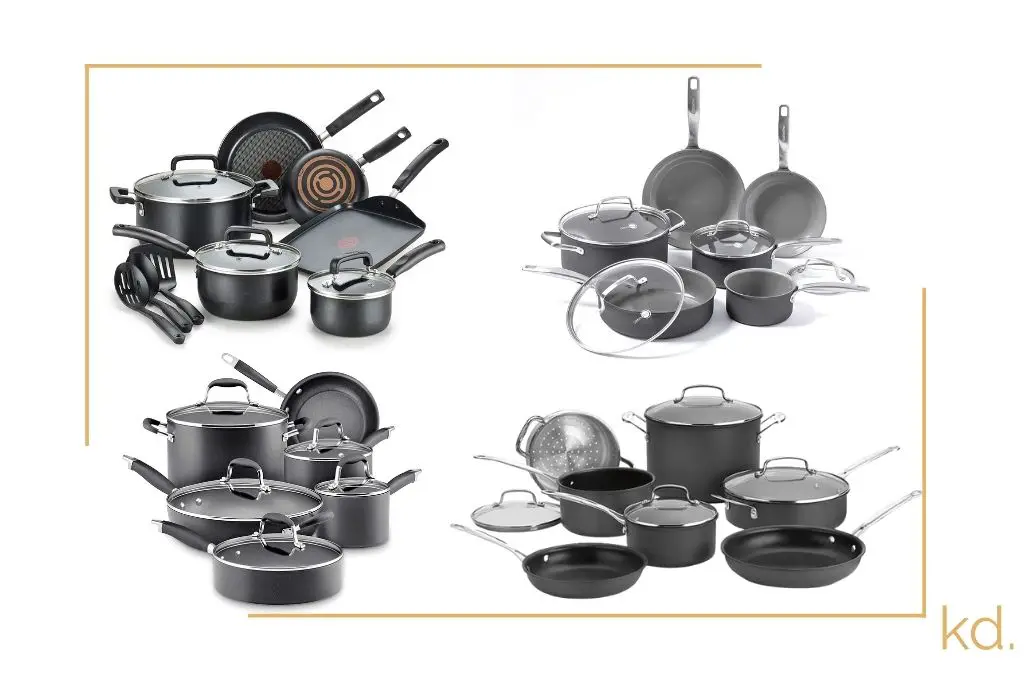When it comes to cooking, we all want to make sure we’re using safe, healthy materials. One type of cookware that’s becoming increasingly popular is hard anodized cookware. But the question remains: Is hard anodized cookware safe? And is hard anodized aluminum cookware safe?
In this blog post, we’ll answer these questions and discuss the safety of hard anodized cookware.
Use links below for easy navigation
What is Hard Anodized Cookware?
Is Hard Anodized Cookware Safe?
Is Hard Anodized Cookware Reactive?
Is Hard Anodized Cookware Teflon Free?
How to avoid scratches on Hard Anodized Cookware
How to buy Hard Anodized Cookware
Bottom Line
What is Hard Anodized Cookware?
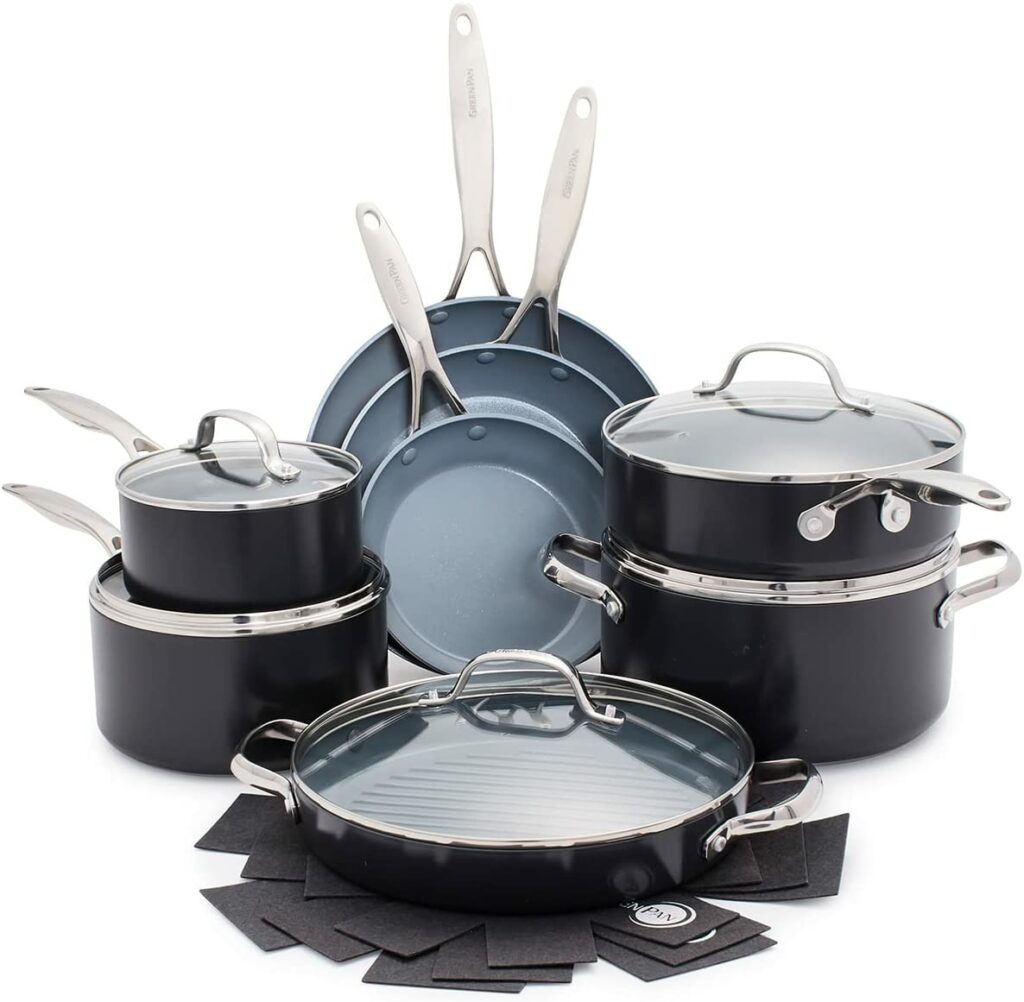
Hard anodized cookware is a type of kitchenware that has been specially treated with an electrochemical process. This process hardens the metal so that it becomes more durable, non-stick, and corrosion-resistant. It also makes it more scratch-resistant and can help it last longer than regular non-stick cookware.
Hard anodized cookware is usually made from aluminum. The aluminum is heated up and then an electrical current is applied to it in an electrolyte solution. This process oxidizes the aluminum and causes it to harden. The result is a surface that is highly resistant to wear and tear, as well as being non-stick.
The hard anodizing process also helps to increase the heat distribution in the cookware. This means that you don’t have to worry about hot spots when cooking, as the heat will be evenly distributed across the entire surface. Plus, it helps prevent food from sticking to the pan or pot.
Related: Cast Aluminum Cookware Pros and Cons
Is Hard Anodized Cookware Safe?
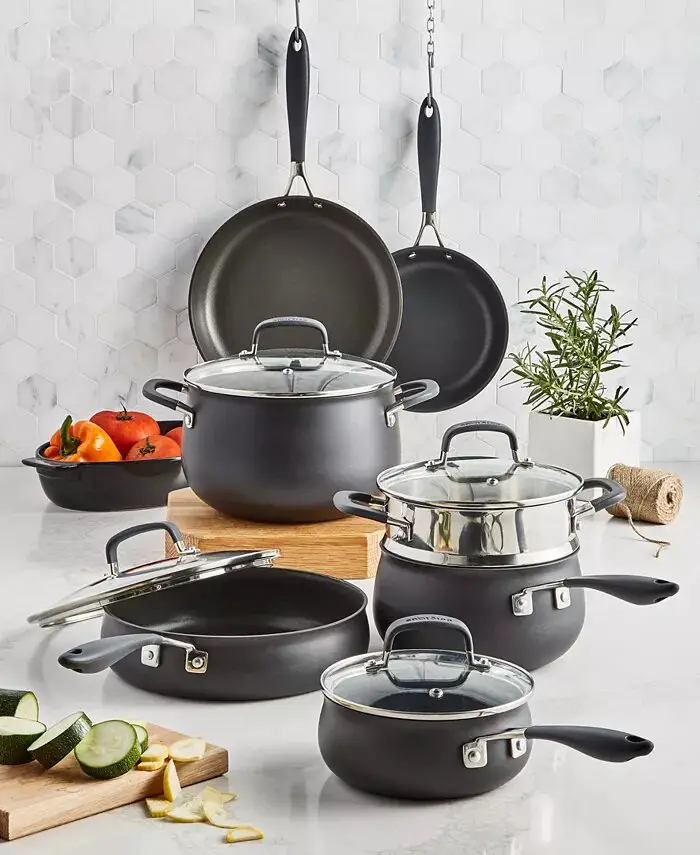
Is hard anodized cookware safe? Is hard anodized aluminum cookware safe? These are important questions to ask when considering what type of cookware to use in your home. Hard anodized cookware is popular for its durability and non-stick properties, but it’s important to know if this type of cookware is a safe choice for your family.
Let’s take a look at the pros and cons of Hard Anodized Cookware.
Hard Anodized Cookware Pros
Hard anodized cookware is a type of metal that has been treated to make it harder than other metals. This makes it suitable for use in cooking and baking because the metal can withstand high temperatures without melting or warping. Let’s take a look at the hard anodized cookware pros.
Durable
Hard anodized cookware is a type of cookware that has an aluminum oxide layer on top of it. This layer makes the metal more durable and resistant to scratches, denting, and rusting.
Does Not Peel Off
Hard anodized cookware does not peel off like other metals do when exposed to heat.
The surface of hard anodized cookware has been treated with a special coating to make it resistant to corrosion and tarnishing. This means that your pans will last longer than regular stainless steel or aluminum models!
Even Heat Distribution
It also distributes heat evenly throughout the pan so you don’t have hot spots or cold spots in your food.
Whether you’re cooking with gas or electric appliances, hard anodized cookware will distribute heat evenly throughout all parts of the pan. This means less time spent turning on/off burners and more time spent cooking delicious meals!
Related: Best nonstick pans for gas stove
Lightweight
Hard anodized cookware is lightweight and easy to store on your countertop or in your kitchen cabinets. This makes it easy to use when you are cooking at home or away from home without having to worry about how much weight the pot or pan is holding.
Nonstick surface does not react
The other major advantage of hard anodized cookware is that nonstick surface that does not react with food or water, and oven-safe. It’s completely safe for use with all types of foods, including acidic foods like tomatoes and fruit juices. You don’t have to worry about ruining your nonstick surface by using these types of ingredients!
Attractive Colors
The color of hard anodized cookware is usually black, silver, or gray. You can find fancier colors, like pink or purple, but they’re usually only available in sets or sets with other pieces of cookware.
In addition to that, hard anodized cookware will not discolor when put in the oven. If your current set does discolor over time – no matter what color – you may want to consider buying a new set that will remain beautiful even after use!
Oven safe
Hard anodized cookware is oven safe to a higher temperature than most other metals, so you can use it with your oven. It doesn’t cause any harm even when left in contact with food for long periods of time—so there’s no need to worry about overcooking or burning your meals!
Easy to clean
Hard anodized cookware is easily cleaned in the dishwasher or on the stovetop. And because it is non-stick, you do not have to worry about scrubbing it. The surface is smooth and easy to wipe down with a sponge.
Lasts longer
Hard anodized cookware lasts longer than other types of pans because it does not scratch easily or corrode over time. It also doesn’t rust like stainless steel pots and pans do when they are exposed to water and acidic foods (like chili or tomatoes).
Nontoxic
Hard anodized cookware is made of non-toxic materials that are safe to use over and over again without fear of poisoning yourself with lead or cadmium, which are found in some cheaper metals.
Hard Anodized Cookware Cons
Hard anodized cookware is a great option for anyone who wants to make their cooking experience more efficient, but it’s not without its downsides.
High Maintenance
Hard anodized cookware is made of aluminum, which can be a great cooking surface but it’s also very prone to scratches and dents. If you don’t take care of your hard anodized cookware, it will become damaged quickly. So while the benefits of using hard anodized cookware are clear, you have to be ready to deal with some maintenance tasks in order to get the most out of your purchase.
Not Dishwasher safe
The main benefit of using hard anodized cookware is that the non-reactive finish will stay intact for years without losing its effectiveness at protecting against scratches and abrasions. However, this also means that cleaning hard anodized pots and pans can be more challenging than other types of cookware because they tend to hold onto dirt and food particulates better than other types of cookware.
Also, Hard anodized cookware is not dishwasher safe, instead, it should be hand washed with warm water and soap or a non-abrasive cleaning agent.
Not induction compatible
If you plan on using your hard anodized pan on induction stoves, know that it may not work well—most induction stoves won’t heat at the same rate as traditional electric ones.
Expensive
Hard anodized cookware is expensive, so you may need to budget for this type of cookware before purchasing it.
Related: Best Cookware Set Under $200
Can Leach Harmful Materials
Hard anodized cookware is considered to be non-toxic, which means they don’t pose a risk of leaching harmful materials into your food. But that doesn’t mean they’re perfect! Hard anodized cookware can still be dangerous if you use the wrong kind of heat source or leave it on too long.
Is Hard Anodized Cookware Reactive?
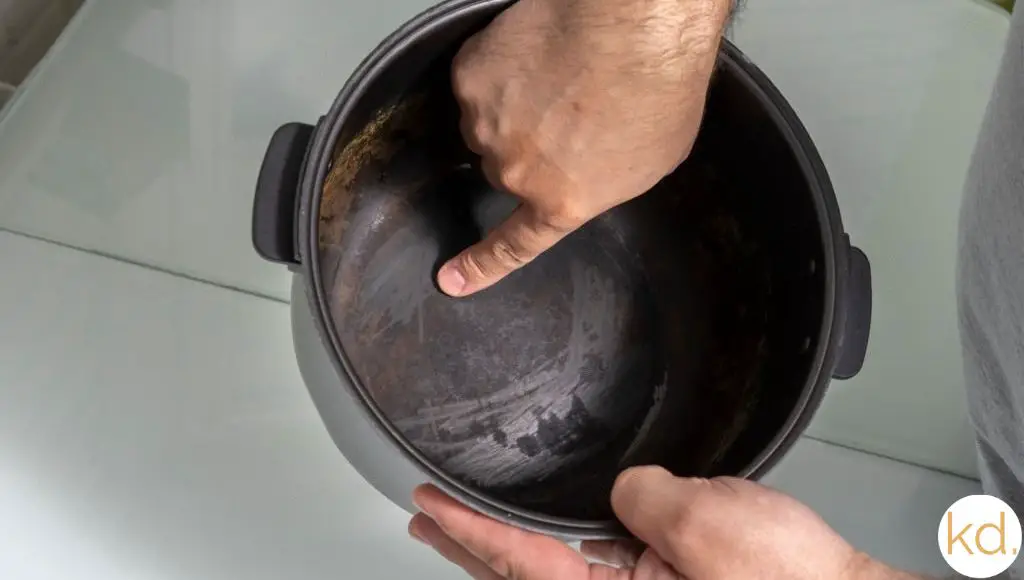
Hard anodized aluminum cookware is not reactive, but plain aluminum is.
Hard anodized aluminum is a protective layer that’s applied to the metal to prevent it from reacting with other metals in the kitchen. This layer prevents the metal from reacting with acidic foods and can also withstand extreme temperatures without corroding or leaching harmful chemicals into your food.
Plain aluminum is reactive, it reacts with acids in foods, making them taste bad or discoloring them.
Is Hard Anodized Cookware Teflon Free?
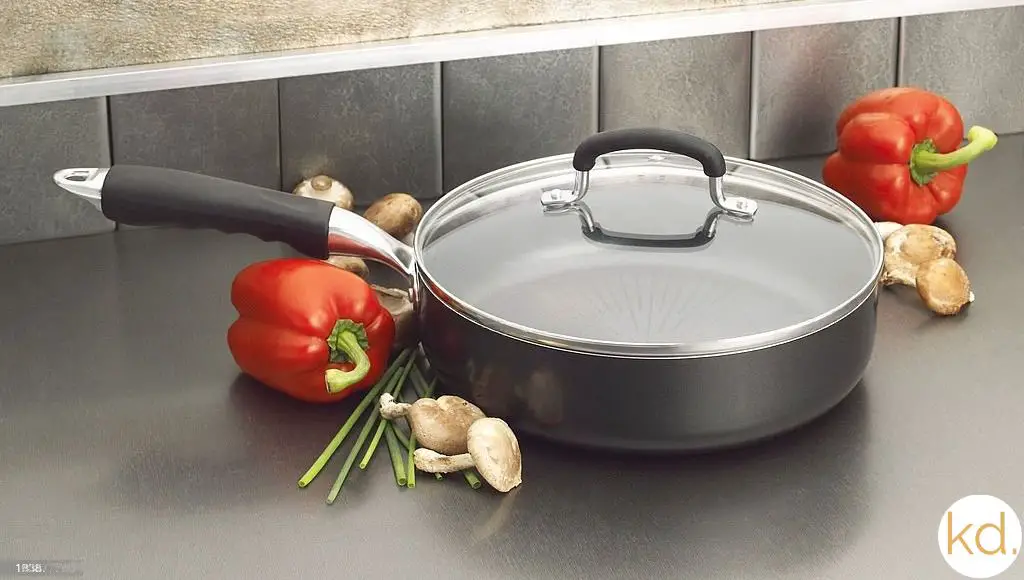
The most common type of hard anodized cookware is Teflon-based, which is what you’ll find in most modern kitchen appliances. Teflon-based cookware is widely used because it’s nonstick and has a longer lifespan than other materials or coatings, but it also poses health risks and has been linked to asthma.
While you can use Teflon-coated cookware safely, most Hard Anodized Cookware is Teflon-free.
Hard anodized cookware is very resistant to scratches and stains, which makes it a great choice for high-end cooking tools. However, hard anodized cookware may contain Teflon, which can leach into your food when the pan is heated up.
You can find out whether or not the cookware you’re looking at has Teflon in it by checking the ingredients list. If the item contains more than one chemical compound (for example Polytetrafluoroethylene), it probably has Teflon in it.
How to avoid scratches on Hard Anodized Cookware
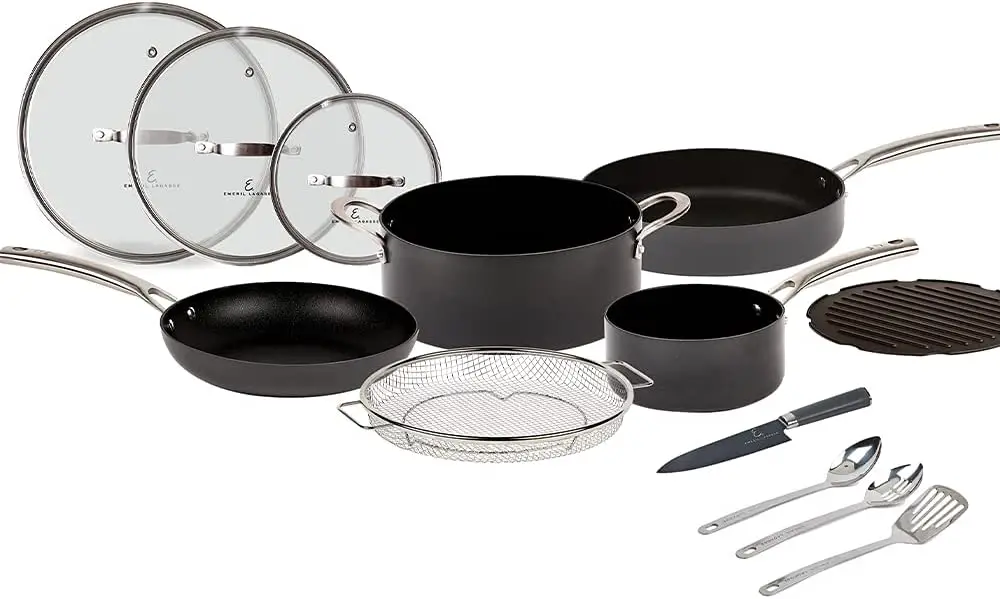
Scratches on hard anodized cookware are a common problem for many people. If your cookware has scratches, this could be a sign of poor quality or even misuse.
You can avoid scratches on your hard anodized cookware by following these easy steps:
1. Wash the cookware by hand in warm soapy water, then rinse it thoroughly with clean water and pat dry before using it again.
2. Avoid using metal utensils. Always use wooden utensils when cooking to keep from scratching the surface of the cookware.
3. Avoid abrasive cleaners such as bleach or scouring pads when cleaning your pans, as they can scratch the surface of the cookware.
4. Store your cookware in a safe place that is not exposed to extreme temperatures (below 50°F/10°C).
5. Cook on low flame to prevent overheating which will cause scuff marks on the surface of your hard anodized cookware.
How to buy Hard Anodized Cookware
Buying Hard Anodized Cookware is a great investment. You can use it to cook almost anything, and it’s easy to clean.
Before you buy, consider the following:
Teflon free coating
Teflon is not good for you or the environment. Look for non-stick surfaces that are PFOA free and safe for high heat.
Cost
While most people don’t want to spend too much on cookware, it’s worth considering what you’re getting for your money. The more expensive cookware will last longer and be more durable than the cheaper stuff.
Quality
Cheap cookware will break easily and may not be able to withstand high temperatures or harsh treatments like dishwashers or microwaves. In order to get a good price on cookware, look for brands like Calphalon or Caraway which tend to be higher quality than other brands that cost less but still offer reasonable prices
Oven safe
This may seem obvious, but if you want your new set of pots and pans to be able to go in the oven then make sure they’re labeled as such! If not, then they may melt or warp when exposed.
Not all cookware is designed to withstand temperatures over 450 degrees Fahrenheit so make sure yours will!
Bottom Line
When it comes to cooking, we all want to ensure that the cookware we’re using is safe for our health and well-being. If you’re considering purchasing hard anodized cookware, you might be wondering whether hard anodized cookware is safe. Yes, it is completely safe to use Hard Anodized Cookware but make sure to look at cost and quality. Most high-end cookware brands will offer a range of prices from low-end to high-end products. If you’re looking for something in the middle of the road, there are still plenty of options out there for you!
Is hard anodized cookware safe?
Yes, hard anodized cookware is safe to use as long as it has been properly cared for and maintained. It can withstand high temperatures without releasing toxins into your food, and its non-stick surface makes it easy to clean.
Is hard anodized cookware more durable than regular aluminum?
Hard anodized cookware is a type of aluminum that has been hardened by oxidation. This makes it much more durable than normal aluminum cookware, which can be damaged and scratched easily by contact with acidic substances (like tomatoes). Hard anodized cookware is also harder than regular aluminum, so it won’t dent or scratch as easily.
